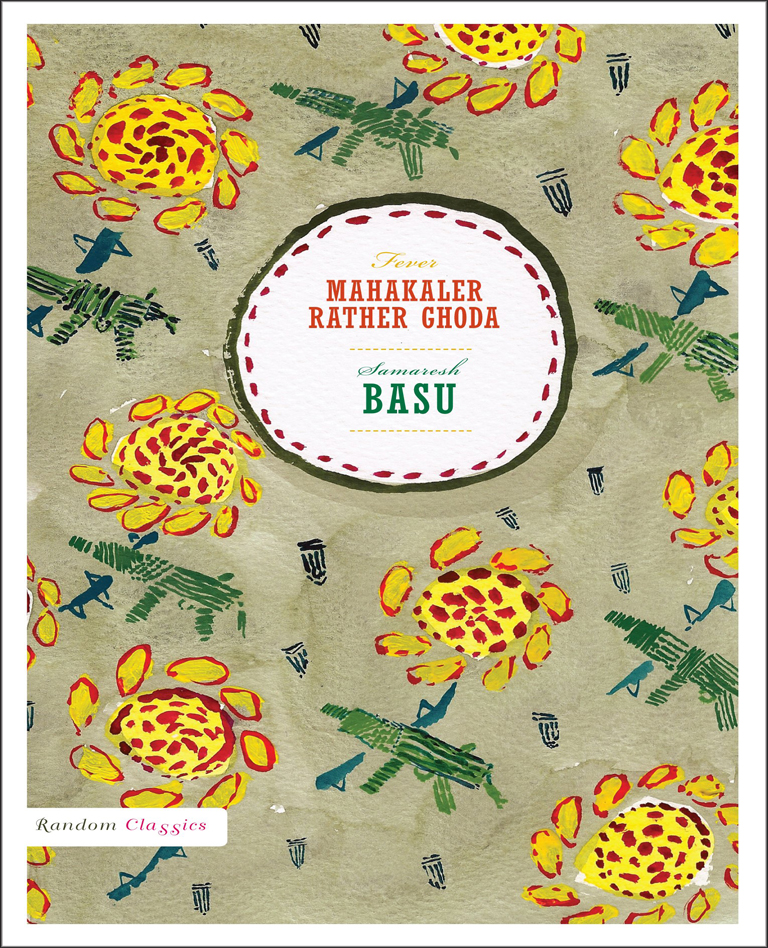You must be logged in to post a review.
Fever
by Samaresh Basu
Description:
Ruhiton Kurmi has been in jail for seven years. Once a notorious Naxalite, he is now a withered shell; a man broken by torture, racked with fevers and sores. The only way he can endure his life is by shutting out the past. But when Ruhiton is moved to a better jail and eventually freed, memories return to haunt him. He looks back upon his youth, his marriage, his home in the Terai foothillsand he remembers too, the friends he has killed, the revolutionary colleagues he made, and the ideals he once believed in. Dark, powerful and full of ambiguities, the classic Mahakaler Rather Ghoda (1977) questions the human cost of revolution and its inevitable transience. A sensation in its time, it remains one of the greatest novels about the Naxalite movement.
About The Author
Samaresh Basu was born in December 22, 1924. He spent his early childhood in Bikrampur, Dhaka. He also wrote under the pen-name of Kalkut.
He would in later days recall the deep impressions that the Brata-kathas (fantastic folk-tales recited by women while performing certain religious rites) narrated by his mother left on him as a child. His adolescent years were spent in Naihati, a suburb of Kolkata, in West Bengal. His life was rich with varied experiences. At one point, he used to hawk eggs from a basket carried on his head; later, he worked for meager daily wages. From 1943 through 1949 he worked in an ordnance factory in Ichhapore. He was an active member of the trade union and the Communist Party for a period, and was jailed for during 1949-50 when the party was declared illegal. While in jail, he wrote Uttaranga,his first published novel. Soon after his release from the jail, he began to write professionally, refusing to join the factory even when offered his old job.
When he was only 21, he wrote his first novel Nayanpurer Mati, later published in Parichay. it was never published as a book. Adab was his first short story published in Parichay in 1946.
A prolific writer with more than 200 short stories and 100 novels, including those written under the aliases “Kalkut” and “Bhramar”, Samaresh Basu is a major figure in Bangla fiction. His life experiences populated his writings with themes ranging from political activism to working class life to sexuality. Two of his novels had been briefly banned on charges of obscenity. The case against one of these, Prajapati, was settled in the Supreme Court of India which overturned, in 1985, the rulings of the two lower courts.
Among other intellectuals, Buddhadeva Bose, himself once accused of similar charges for his, came out strongly in support of Samaresh. To quote from Sumanta Banerjee’s recent translation Selected Stories (Vol.1), Samaresh Basu “remains the most representative storyteller of Bengal’s suburban life, as distinct from other well-known Bengali authors who had faithfully painted the life and problems of either Bengal’s rural society or the urban middle class. Basu draws on his lived experience of Calcutta’s `half-rural, half-urban,’ industrial suburbs.”
While the pen-name “Kalkut” was adopted in 1952 for the immediate need to publish an overtly political piece, the real “Kalkut” can be said to have been born with the publication of Amritakumbher Sandhane, a hugely popular, semi-autobiographical narrative centered around the Kumbha-mela. The many subsequent books by Kalkut had depicted the lives of the common people from all over India and all walks of life (including those who live on the periphery of the “mainstream”) with their varied cultures and religious practices in a unique style that was Kalkut’s own. He also drew upon the recollections of the Puranas and Itihas; Shamba , an interesting modern interpretation of the Puranic tales, won the Sahitya Akademi Award in 1980.
Samaresh Basu breathed his last on March 12, 1988.







Reviews
There are no reviews yet.